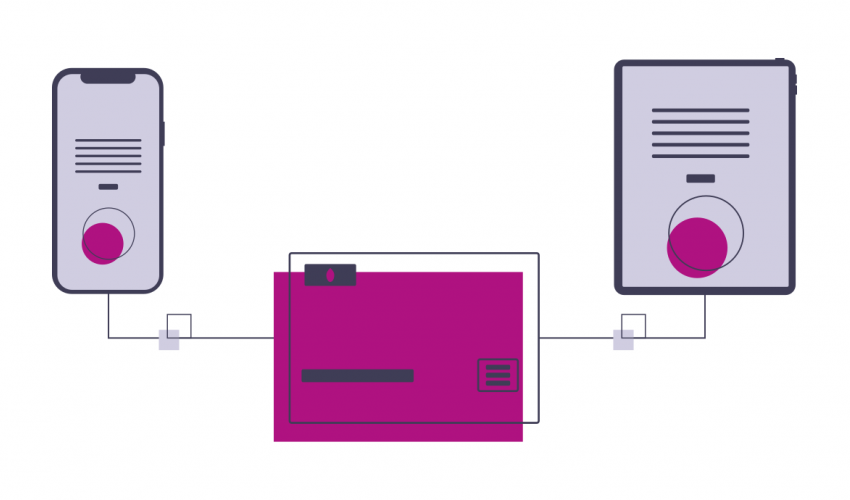
Affiliate marketing is a method of advertisers (i.e a blogger) being able to earn commission on products they recommend.
When we mention a product or service within the digital content we put out, we are in effect advertising this. If somebody then goes onto purchase that item, it makes sense that the person who sent them there should be financially compensated.
In the age of blogging and YouTube, this couldn't be truer. After all, it takes time, money and effort to create the content for which other companies are set to benefit from. If referrals work for word of mouth in the physical world, then it's only right that digital referrals should be rewarded too.
If you are new to the concept of affiliate marketing, here is everything you need to know.
Affiliate marketing at a glance
When browsing blogs or YouTube descriptions, you may have noticed a shortened link, which leads to a product or service the content mentions. It looks different from a regular link, and that's because it is. Instead of it being a link copied directly from the browser to send you to another website, it is most likely what is known as an affiliate link, which is centred around affiliate marketing.
The link has been generated with permission of the company so that if you make a sale after clicking the link, the source who sent you there will earn a cut from that sale. Affiliate marketing is a method in which people can generate passive income, as they are being financially rewarded for helping a company sell a product.
How to implement affiliate marketing
Affiliate marketing requires special links or images so that when a user clicks on them and makes a sale, it tells the advertiser which affiliate referred the customer. It's not simply a case of directly copying a URL and pasting it into your text. If the link isn't affiliated and the customer goes onto purchase, you won't be financially compensated.
To implement affiliate marketing, there are a few things you need to put in place. Firstly, you need to register with an affiliate marketing company. There are hundreds to choose from including Skimlinks, Clickbank and ShareASale. Individual companies such as Trip Advisor, Amazon and eBay also have their own affiliate programs, where if you encourage people to sign up to their website and they spend money or book a trip (depending on the website offering) you will earn a commission on what they spend.
The affiliate marketing program you choose really depends on the nature of your content. You can also sign up to multiple affiliate programs. However, you'll need to gain approval from the affiliate company before you are allowed to generate links with them. After that, it's simply a case of placing links or images generated through your affiliate providers websites onto your own.
Affiliate marketing is available for blogs, websites, YouTube, email marketing and social media.
Other points to keep in mind
Similar to sponsored posts, if you use affiliate marketing then you need to declare this to your audience. The ASA has further guidance on this complex topic. It's quite heady to read through but well worth doing so if you want to avoid potential penalties.
Although uncommon, some websites users object to affiliates being used in general, so it's a good idea to declare it somewhere on your website or videos that you do so.
You should also take care when choosing your affiliates. For example, Skim Links asks you to select a particular retailer for your affiliate link. If the user is in another country and the website won't load, or even if the price isn't competitive - you won't be compensated if they buy it elsewhere. The key is to look for generic retailers (such as Amazon or other multinational websites) that also offer a decent commission rate.
Your content quality also plays a part in how successful your affiliate marketing will be. As a rule of thumb, responsive websites with plenty of SEO that get updated regularly are much likely to fair better. After all, you need people to be able to find your content in the first place to be able to send them to your affiliates.
Find out more
We hope the above guide has helped you get to grips with affiliate marketing. It's a fantastic tool for you to be able to generate income for your business or be able to turn your hobby into a viable side income. All that's required is the placement of specific links or images within your content advertising another companies products or services. For each sale this then generates, you will earn a percentage.
Affiliate marketing largely depends on the quality of the website and indeed affiliate, as to how successful it will be. It's also about matching it up to the right audience (i.e beauty products for a blog website).
Want to find out more? For further information on affiliate marketing or other assets such as PPC, SEO, responsive website design, book in for your free consultation by clicking here, or give us a call on 0115 939 7572 to learn more.